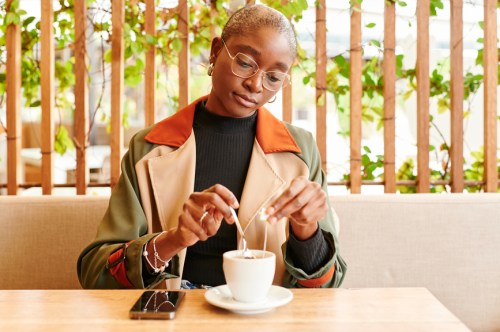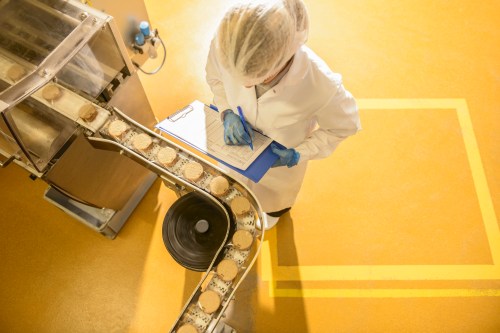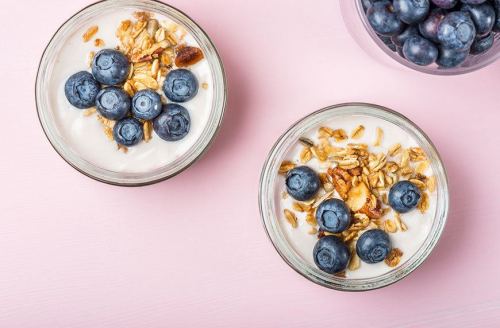Our editors independently select these products. Making a purchase through our links may earn Well+Good a commission
If black tea and green tea had a baby, it would be a taste and look a little like oolong tea. Slightly grassy with a hint of sweetness, oolong is a bit harder to track down than its cousins Earl Grey, matcha, or English breakfast, but it’s definitely worth going out of your way to find given its impressive health-boosting, stress-reducing benefits.
Experts in This Article
founder and director of Real Nutrition
“It has similar health benefits to black and green tea and is actually made from the same leaves as green tea. The difference is how it’s processed,” explains registered dietitian Amy Shapiro, RD. “Green tea leaves are not allowed to oxidize much and black tea is. Oolong falls somewhere in the middle.” Here, Shapiro spills the tea on oolong’s benefits, plus some of the best ways to drink up.
What are some health-related oolong tea benefits?
1. It can help the body manage stress. According to Shapiro, oolong tea contains L-theanine, an amino acid that’s associated with sleep and relaxation. “This is what is responsible for the relaxing effect oolong tea has,” she says. Scientific research shows that L-theanine stimulates alpha waves in your brain, which are associated with a relaxed, focused state of mind. Of course, oolong also has caffeine, so you’ll feel focused, not sleepy. (So, better as a mid-afternoon pick-me-up than a bedtime drink.)
The good news? If oolong isn’t exactly your cup of tea (pun intended), there are several other L-theanine teas on the market to try. This includes options such as green, black, and matcha teas. All of which are also packed with the stress-reducing benefits of L-theanine.
2. Oolong tea is full of polyphenols. Shapiro also points out that oolong tea is high in polyphenols, which are linked to lowering inflammation and can potentially help protect the body against free radicals and prevent the growth of certain types of cancers and other illnesses.
3. It can help with inflammation. “This is likely because of the high amount of polyphenols and antioxidants,” Shapiro says of this connection. (Basically, the antioxidants in the tea help combat free radical damage.) “Also, because oolong tea can help with maintaining overall health, that in turn can help prevent further damage.”
4. It may be good for brain health. Scientists have found that consuming oolong tea could help prevent cognitive diseases, such as Parkinson’s and Alzheimer’s, because of its high content of epigallocatechin gallate (EGCGs), a plant compound believed to help reduce inflammation, and L-theanine. “One reason may be due to the caffeine in the tea as caffeine increases neurotransmitter activity in the brain,” Shapiro adds. “Also, the L-theanine reduces anxiety and increases alertness and attention. Finally the antioxidants and polyphenols in the tea also help,” she says.
5. It could help protect against certain cancers. “Oolong tea is abundant in antioxidants much like green and black tea which has also been shown to fight and prevent certain cancers and illnesses in the body, including oral cancer along with lung, esophageal, pancreatic, liver, and colorectal cancers,” Shapiro says. “However, more research is needed on oolong specifically since most of the research is on green and black teas.” To her point, because oolong tea isn’t as popular as black or green, there is less research on it.
How to enjoy oolong tea
Like black or green teas (aka one the best teas for skin), oolong tea can be enjoyed hot or iced; the temperature won’t affect all the amazing health benefits. When making your tea, allow it to steep for a full five minutes to get the maximum potency. Once the leaves have fulfilled their steeping duty, you can place the used tea bags on eyes to help reduce inflammation, for an easy zero-waste hack. The caffeine found in oolong can help depuff the delicate skin around your eyes by helping constrict blood vessels and tightens the skin, this can also potentially help reduce the appearance of dark circles.
As mentioned, oolong tea isn’t as popular as some other tea varietals, but if you can’t find it at a locale cafe or tea shop, it’s readily available online. DavidsTea, Bigelow, Twinings, and Art of Tea all have oolong tea as part of their collections, and are just some of our favorites. Bottoms up!
What is the best time to drink oolong tea?
As mentioned earlier, oolong tea contains caffeine that may help you feel focused and energized throughout the day. As such, this jolt of energy may be best suited for morning or afternoon, when you’re looking to get that extra pep in your step. (For context, oolong and green tea contain about the same amounts of caffeine, aka roughly 10 to 60 milligrams per eight-ounce cup.) In other words, a relaxing, sleepytime tea—something along the lines of chamomile, lavender, or other decaffeinated herbal drink—would be a better choice for the evening if unwinding for the night is the goal.
That said, sleep experts argue that drinking teas rich in L-theanine (and a bit of caffeine) during the day can potentially mean better shuteye come bedtime; the key is simply when you drink it. “Drinking green tea throughout the day—yes, rather than at night—may be helpful for reducing fatigue and increasing sleep quality,” Michael Breus, PhD, a leading sleep specialist known as “The Sleep Doctor” and clinical psychologist, previously shared with Well+Good.
The compound in green (and oolong) tea called L-theanine helps the brain relax by reducing stress-related hormones and neuron excitement. The trick? Consuming the beverage at least a few hours before you hit the hay. If you regularly consume teas with L-theanine, and do it several hours ahead of bedtime, you can still reap its sleep-inducing benefits without the caffeine buzz, the sleep expert explains. In other words, oolong tea benefits include sustained energy during the day, and relaxation perks during the night. A win-win.
Can I drink oolong tea on an empty stomach?
Although sipping oolong tea on an empty stomach is generally safe for most individuals, it can trigger GI-related discomfort for others. “For some individuals, drinking coffee and tea on an empty stomach may cause heartburn, indigestion, or nausea because they may stimulate acid production in the stomach,” registered dietitian nutritionist Keri Gans, RDN, previously shared with Well+Good.
If that’s the case for you, you’ll simply want to pair the drink with food in order to prevent these symptoms from occurring. That said, if you continue to experience any of the aforementioned symptoms despite consuming the drink with food, it’s best to consult a medical professional to ensure there are no additional underlying conditions at play.
Also, it’s important to be mindful that if you’re sensitive to caffeine, then you should be wary of potential tea headaches that can arise due to the caffeine content. If that’s the case you may want to opt for other kinds of herbal tea for energy, like peppermint or ginger, instead of ones that actually contain caffeine. And if you’re simply curious about the health benefits of other teas and want to explore some more options, here’s why hibiscus tea and barley tea can be good for you too.
An herbalist shares an easy herbal tea recipe that can help calm your system for a good night’s rest:
Sign Up for Our Daily Newsletter
Get all the latest in wellness, trends, food, fitness, beauty, and more delivered right to your inbox.
Got it, you've been added to our email list.









